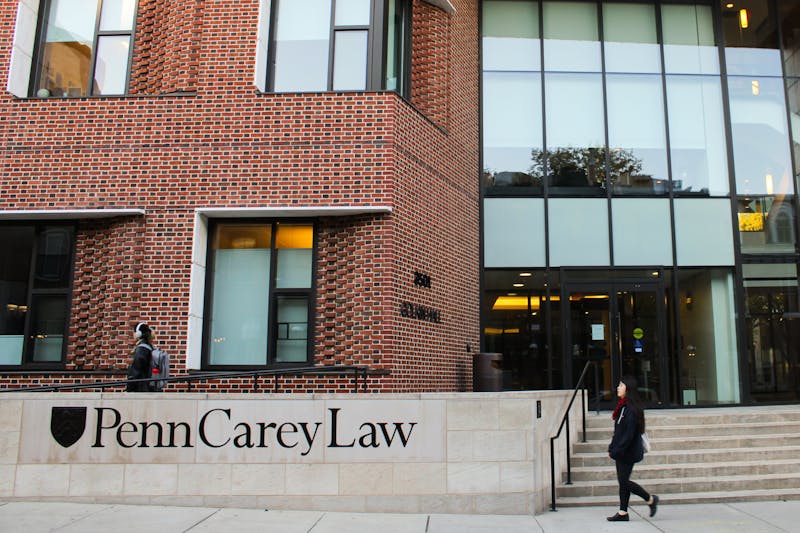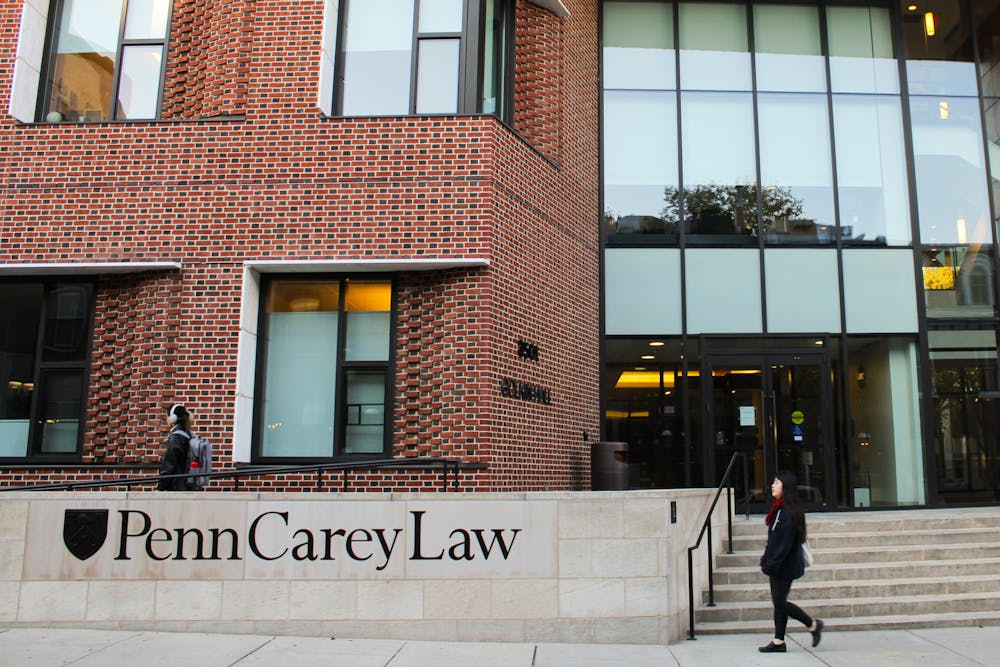On Sept. 12, Penn Carey Law announced the launch of the Sadie T.M. Alexander Post-Graduate Fellowship for students working on a civil rights project.
Credit: Jean Park
The University of Pennsylvania Carey Law School has announced a new postgraduate fellowship in honor of civil rights activist Sadie Alexander — the school’s first Black female graduate — following controversy surrounding the suspension of a previous program in her honor.
The Dr. Sadie T.M. Alexander Fellowship, set to launch during in fall 2026, will provide two years of funding to Penn Carey Law graduates pursuing work that advances civil rights. According to the Sept. 12 announcement, the program will give special consideration to projects that address racial and economic justice and benefit communities in Philadelphia or Washington — reflecting Alexander’s “pioneering work” and “deep ties to both cities.”
The new measures follow mounting criticism in response to Penn Carey Law’s rollback of diversity initiatives. In August, the law school suspended a full-tuition scholarship program honoring Alexander, drawing criticism from local politicians, along with Penn students, faculty, and alumni.
“The University of Pennsylvania Carey Law School is strengthening its commitment to access, both to its innovative and interdisciplinary legal education and, for its graduates, to impactful careers of their choosing,” the announcement read.
The fellowship will be offered alongside a full-tuition scholarship initiative for incoming students in greatest need of financial support.
“Together, [the fellowship and scholarship] affirm Penn Carey Law’s dedication to reducing barriers to entry and ensuring that students—regardless of financial circumstances—can embark on their legal education and carry it forward into their choice of meaningful careers,” the announcement continued.
Philadelphia City Councilmember Jamie Gauthier, who previously criticized Penn’s suspension of the scholarship, acknowledged her “hope” for the new program in a written statement to The Daily Pennsylvanian.
“I’m glad Penn Law listened to our feedback, as well as that of its Black alumni, in restoring some initiatives that make the school more welcoming and inclusive,” Gauthier wrote. “I hope this is the start of a larger, university-wide recommitment to diversity.”
In an Aug. 7 statement on LinkedIn, Gauthier described Penn’s decision to cut the scholarship as a “cowardly, short-sighted move [that] is as disappointing as it is immoral.”
“Dr. Alexander’s work had far-reaching impact in public and private life,” Gauthier wrote. “Penn’s decision will too — but in a way that closes doors and rolls back opportunities for Black and Brown students.”
Gauthier added that “we deserve better from Penn.”
Sign up for our newsletter
Get our newsletter, DP Daybreak, delivered to your inbox every weekday morning.
Around the same time, Penn Carey Law also shut down its Office of Equal Opportunity and Engagement, marking the latest closure contributing to a widespread removal of diversity, equity, and inclusion initiatives across the University.
Despite Gauthier’s grievances, Penn Carey Law Dean Sophia Lee emphasized that the school has remained committed “to ensuring access and opportunity for all” in a statement regarding the closure.
Alexander, who earned both a Ph.D. in economics and a law degree at Penn, was one of the first Black women in the United States to become a practicing lawyer, dedicating her life to racial and economic justice. By providing funding for projects in these areas, the fellowship is meant to continue her legacy.
The Daily Pennsylvanian is an independent, student-run newspaper. Please consider making a donation to support the coverage that shapes the University. Your generosity ensures a future of strong journalism at Penn.

